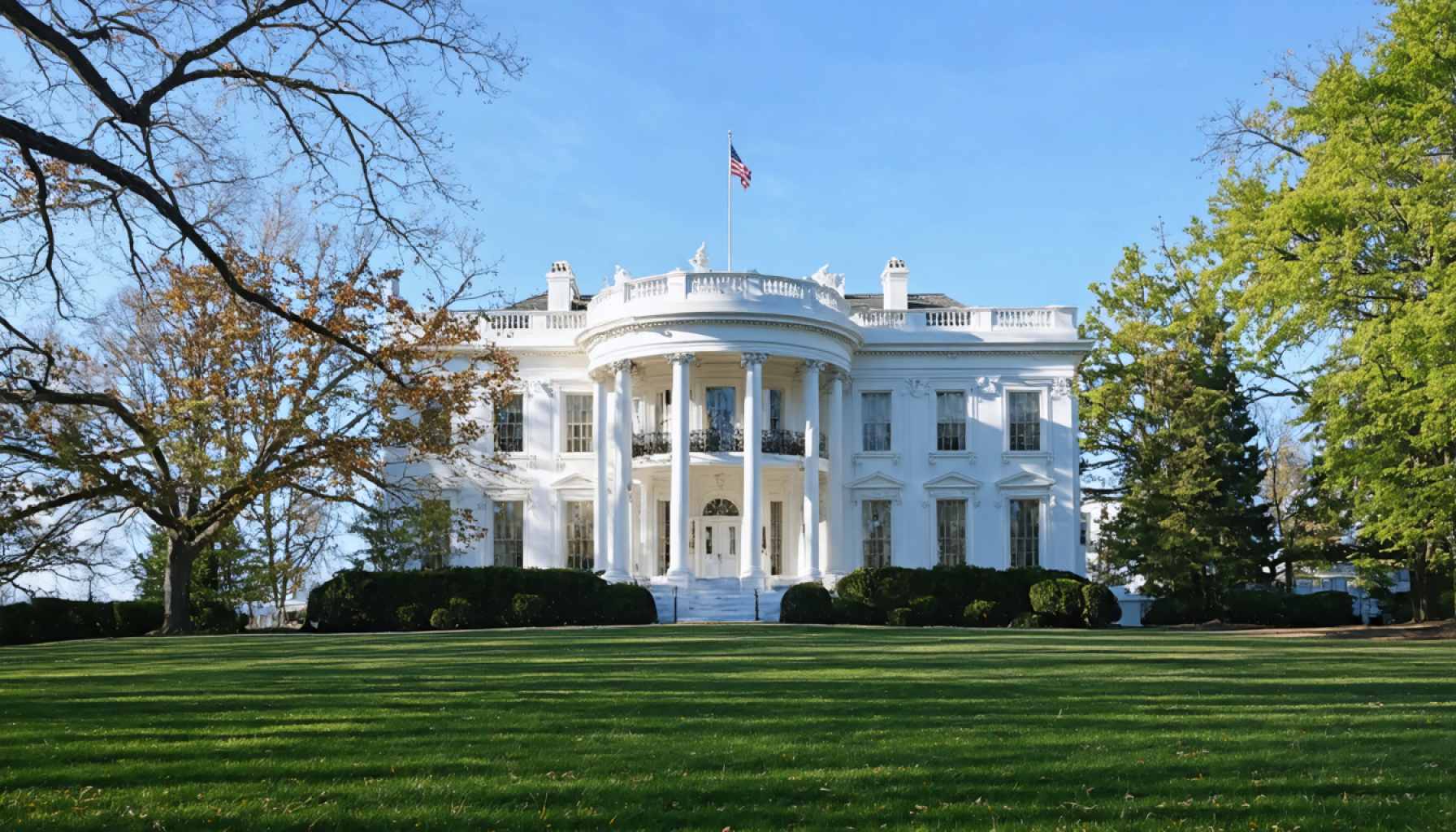- Mark Zuckerberg’s $23 million mansion purchase in Washington, D.C.’s Woodland Normanstone neighborhood signifies strategic positioning in tech diplomacy.
- This acquisition highlights the growing influence of Silicon Valley in American policy-making, particularly in digital governance and technology policy.
- Zuckerberg’s move aligns with other tech leaders like Jeff Bezos and Eric Schmidt, who also establish residences near political hubs to facilitate private discussions on technology and governance.
- The presence of tech moguls in the capital underscores the intersection of technological innovation and political engagement as tech giants expand their influence in government spheres.
- This trend raises concerns about economic disparities, as wealthy executives amass power while local communities face economic challenges and transformation.
Amidst the historic avenues of Washington, D.C., where politics intertwine with power, a new mansion now glistens in the prestigious Woodland Normanstone neighborhood. Its allure isn’t just in its $23 million price tag or its proximity to the White House—or even its modern farmhouse charm. Instead, it’s the identity of the buyer that has tongues wagging in hushed speculation and soft whispers of strategic maneuvering.
Behind this grand purchase stands none other than Mark Zuckerberg, the CEO of Meta. His move stirs the waters of tech influence in the capital. This latest acquisition is not merely about adding another luxurious address to his portfolio, which already boasts homes in the idyllic enclaves of Palo Alto, Lake Tahoe, and the paradisiacal shores of Hawaii. This is about positioning—strategic, calculated, and undeniably poignant.
Zuckerberg’s new abode symbolizes more than just personal comfort; it marks a new chapter in tech diplomacy—a direct line to the heart of American policy-making. As someone who wields significant control over global digital communication networks, having a foothold in Washington is significant. It is about being part of the conversations that will shape the future of digital governance and technology policy in the United States.
The whisper of jet engines behind Zuckerberg’s private plane recently landing at Dulles serves as a sly indication of his intentions. Such maneuvers have been noted before. Political engagement, after all, is now part of the tech titan’s playbook. For those who have watched Silicon Valley grow from a bastion of innovation to a center of influence, this move is further proof that the realm of politics is now an indispensable frontier for tech behemoths.
Moreover, Zuckerberg is not alone in this real estate ballet. Beside him, other tech moguls like Amazon’s Jeff Bezos and former Google CEO Eric Schmidt have also laid claims to their own stately establishments within the capital’s borders. Each residence serves as both a bastion and a beacon—an intimate setting for private discussions where the future of technology and governance are likely pondered over fireside chats and glittering dinner parties.
Yet, we must also consider the paradox this opulence represents. As billionaire executives descend upon Washington, secured in their urban fortresses, many local residents face instability and the pressures of a transforming economic landscape. The stakes in the District of Columbia are high, and as contrasts deepen between those who govern the future of digital economies and those impacted by its disruptive currents, the narrative of power and influence takes on new dimensions.
The key takeaway from Zuckerberg’s latest property venture extends beyond luxurious living. In a world where technology increasingly dictates the rhythm of society and politics, this move heralds the intricate dance between tech giants and political gatekeepers. As the tech realm lays its claim ever closer to the corridors of power, the world will watch closely, mindful that every step in this dance reshapes the contours of our shared future.
Mark Zuckerberg’s Washington D.C. Mansion: More Than Just a Luxurious Address
Introduction
In the heart of Washington D.C.’s prestigious Woodland Normanstone neighborhood, a $23 million mansion has become a focal point of intrigue. This grand purchase by Meta’s CEO, Mark Zuckerberg, is not merely another addition to his collection of luxury homes across Palo Alto, Lake Tahoe, and Hawaii. It signifies a strategic maneuver that intertwines tech influence with politics, raising essential questions about the convergence of technology, governance, and society.
The Significance of a “Tech Base” in D.C.
Zuckerberg’s latest acquisition is a testament to the growing trend of tech moguls establishing a presence in Washington D.C. It’s not just about luxurious living but ensuring they have a seat at the table where digital governance and technology policy decisions are made. Proximity to the White House and other centers of power allows Zuckerberg to participate directly in policy-making processes, leading to a more profound impact on the tech industry’s regulatory landscape.
Life Hacks & Real-World Tips
– Networking: Establishing a presence in influential locales can significantly enhance networking opportunities. It’s a reminder that physical presence still plays a crucial role in digital age negotiations.
– Understanding Policy: For tech professionals and entrepreneurs, keeping abreast of policy discussions can help align business strategies with forthcoming regulations.
Market Trends & Industry Insights
Tech executives like Zuckerberg, Jeff Bezos, and Eric Schmidt investing in properties in D.C. is not just about opulence; it’s about influence. The trend signals a merging of the tech and political spheres, highlighting the increasing importance of tech-savvy leadership in policy development.
– Forecasts: Expect more tech leaders to secure homes in Washington D.C. as the tech policy landscape evolves, reinforcing the city as a hub of tech-political discourse.
Controversies & Criticisms
This trend raises concerns about the growing influence of billionaires in politics. While the potential for positive tech policy development exists, there is also the risk that disproportionate influence could lead to policies that overly favor large tech companies at the expense of smaller players and the general public.
Pros & Cons Overview
Pros:
– Enhanced dialogue between tech leaders and policymakers.
– Direct input into technology policy and governance.
Cons:
– Potential for increased economic disparity in local communities.
– Risk of tech company interests overshadowing broader public concerns.
Actionable Recommendations
1. Stay Informed: Keep track of tech policy developments and participate in public discourse.
2. Network Wisely: Consider the strategic value of location in business and personal relationships.
3. Advocate for Balanced Policies: Support initiatives that aim to balance tech innovation with fair regulation.
Concluding Thoughts
Mark Zuckerberg’s purchase of a mansion in Washington D.C. serves as a powerful symbol of the convergence between tech and political spheres. As tech moguls continue to intertwine their personal and professional lives with centers of power, the narratives of influence, governance, and societal impact will keep transforming. This shift calls for heightened awareness and proactive engagement from all stakeholders in the tech ecosystem.
For more insights on the implications of tech in our modern world, visit Washington Post.












